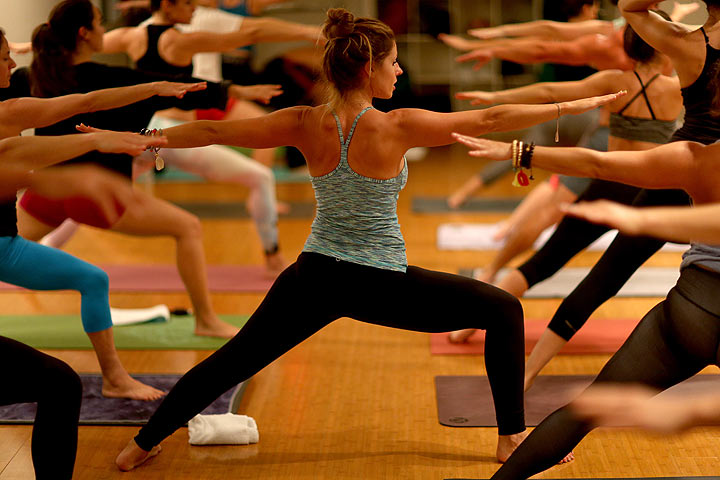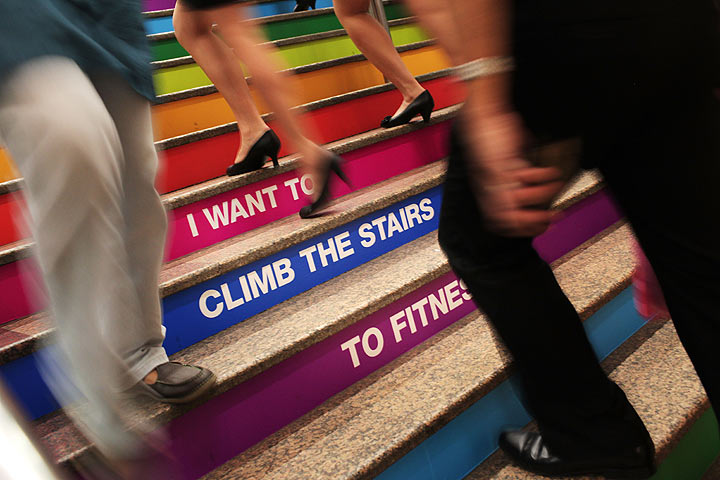TORONTO – A weekend of holiday parties and late nights can make for a sluggish Monday. Here are five natural ways to boost your energy.

Have some coffee, but no more than 3
Ahh coffee, the only thing luring many of us out of bed in the morning. Coffee contains caffeine, an energy-boosting stimulant that temporarily restores alertness.
The health effects of coffee have been widely debated, but Health Canada says that moderate caffeine intake does not show any adverse health effects in adults. Health Canada recommends adults limit their caffeine intake to the no more than 400 mg/day – the equivalent of three eight-ounce cups of coffee.
What happens after three cups? A recent study spanning 30 years warned that people under the age of 55 who drink more than four cups of coffee a day were at a greater risk for dying young than their caffeine-free counterparts.
The study showed that men under 55 who drank more than 28 cups of coffee per week, had a 56 per cent higher death rate than those who didn’t. Women faced a two-fold greater risk of dying compared to their counterparts who didn’t drink as much coffee. Also, those who drank more coffee also had a tendency to smoke and exercise less.
“From our study it seems safe to drink one to three cups of coffee a day,” the study’s co-author Xuemei Siu told USA Today. But “drinking more than four cups of coffee a day may endanger health,” she said.
Skip the energy drinks
“No one needs an energy drink,” say the Dietitians of Canada, a professional body that represents roughly 6,000 dietitians in Canada.

Get weekly health news
While they may provide you with a short burst of energy, it won’t last. Most energy drinks are loaded with sugar – some varieties contain as much as 14 tablespoons of sugar per serving. Not only will your energy levels crash, you could be doing serious damage to your teeth, according to a recent study.
“Young adults consume these drinks assuming that they will improve their sports performance and energy levels and that they are ‘better’ for them than soda,” said Dr. Poonam Jain, lead author of a study looking at the effect of energy drinks on tooth enamel. “Most of these patients are shocked to learn that these drinks are essentially bathing their teeth with acid,” said Poonam.
Energy drinks can also contain extremely high levels of caffeine, which can cause serious health risks.
In October 2011, Health Canada introduced new regulations for energy drinks – companies would be required to cap the amount of caffeine in the beverages and list all of the ingredients in the controversial products.
Eat energy-boosting foods
Say goodbye to the low-carb diet. Carbohydrates are the brain’s primary source of energy and are found in many foods including grain products and fruits and vegetables.
The Dietitians of Canada say that we need carbs for proper energy and brain functions. Carbohydrates are also a good source of vitamins, minerals and fibre.
For increased energy, opt for snacks that contain protein and complex-carbohydrates (think whole grains), rather than simple carbohydrates (pop, white bread, candy, etc). Complex carbs are digested more slowly than simple carbs, keeping your energy levels up for longer.
Health Canada recommends that half of our daily grain products be whole grain, such as oats, barley, brown rice, and whole grain breads and pasta.
Need a pick up? Snack on whole grain crackers with all natural peanut butter or cheese.
Get moving
If you’re sitting at your desk and your eyes start to feel heavy, your chin droops and you can’t seem to get enough oxygen no matter how much you yawn, it may be time for a quick walk.
Studies have shown that even a 10-minute walk can restore alertness and boost energy levels.
Robert E. Thayer, from California State University, studied the effect short, brisk walks can have on energy levels and mood. He studied two groups, one that took brisk 10-minute walks daily and another that snacked on candy bars.
The walking group reported significantly more energy and lower tension than the snacking group. Not only that, the walking group reported that the effects lasted up to two hours.
The Public Health Agency of Canada says increased energy is just one of the benefits of regular exercise. Guidelines developed by the government and the Canadian Society for Exercise Physiology (CSEP) state that adults should aim for at least 150 minutes of accumulated moderate to vigorous exercise per week in bouts of 10 minutes or more.
Drink more water
Make water your beverage of choice, urges Health Canada.
Water is needed for numerous bodily functions including digestion, carrying nutrients through the body, waste removal, and more. Not only that, it’s a calorie-free way to stay hydrated.
Feeling sluggish? Reach for the water. Signs and symptoms of dehydration include lack of energy, tiredness, low blood pressure, and irritability (among many others).
Just how much water you need is still up for debate.
While tradition would tell you “drink eight 8-ounce cups of water every day,” how much water you need depends on your age, gender and activity level.
The Dietitians of Canada recommend 12 cups of fluids a day for men over 19 years, and 9 cups a day for women over 19. Breastfeeding women should increase their fluids intake to about 12.5 cups a day.
With a file from Global News’ Carmen Chai













Comments